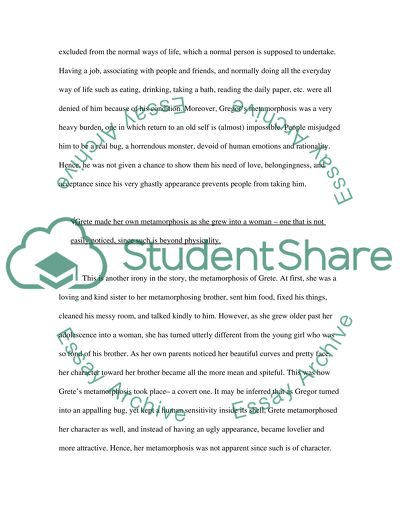Cite this document
(The Presence of Irony in Franz Kafkas The Metamorphosis Book Report/Review, n.d.)
The Presence of Irony in Franz Kafkas The Metamorphosis Book Report/Review. https://studentshare.org/psychology/1499365-the-presence-of-irony-in-franz-kafkas-the-metamorphosis
The Presence of Irony in Franz Kafkas The Metamorphosis Book Report/Review. https://studentshare.org/psychology/1499365-the-presence-of-irony-in-franz-kafkas-the-metamorphosis
(The Presence of Irony in Franz Kafkas The Metamorphosis Book Report/Review)
The Presence of Irony in Franz Kafkas The Metamorphosis Book Report/Review. https://studentshare.org/psychology/1499365-the-presence-of-irony-in-franz-kafkas-the-metamorphosis.
The Presence of Irony in Franz Kafkas The Metamorphosis Book Report/Review. https://studentshare.org/psychology/1499365-the-presence-of-irony-in-franz-kafkas-the-metamorphosis.
“The Presence of Irony in Franz Kafkas The Metamorphosis Book Report/Review”. https://studentshare.org/psychology/1499365-the-presence-of-irony-in-franz-kafkas-the-metamorphosis.


